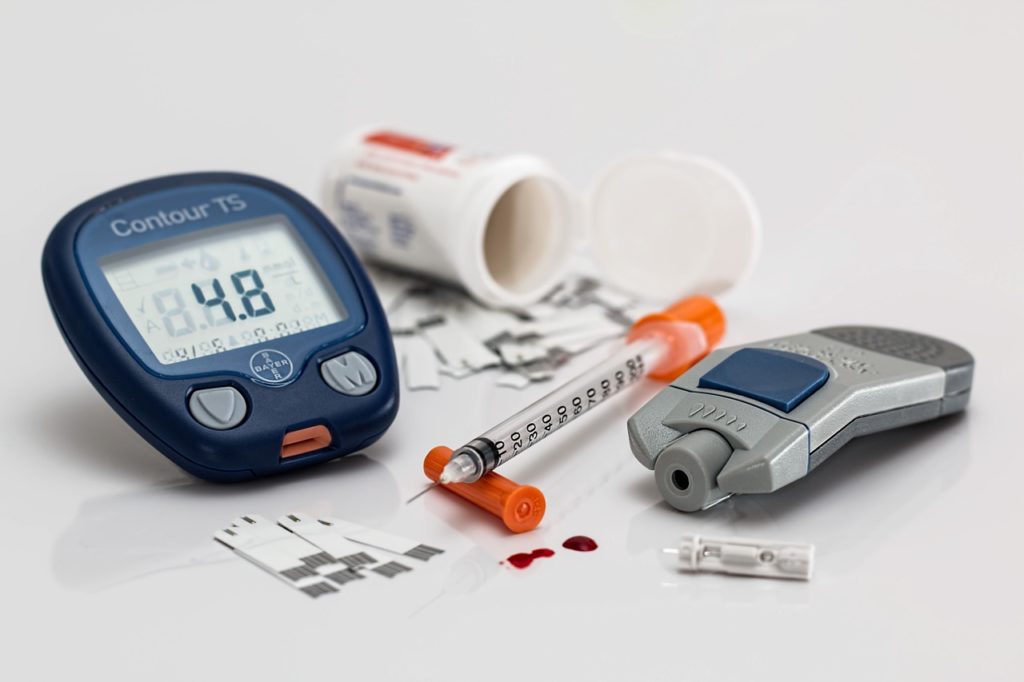The Global RFID in Healthcare Market size was estimated at USD XX billion in 2021 and is expected to hit around USD XX billion by 2031, poised to grow at a compound annual growth rate (CAGR) of XX% from 2022 to 2031.
The adoption and use of Radio Frequency Identification (RFID) technology within the healthcare sector is referred to as the “Global RFID in Healthcare Market.” RFID is a technology that makes use of electromagnetic fields to quickly recognise and track items that have RFID labels or tags on them. These tags have data that is electronically stored and can be read or acquired by RFID readers or scanners from a distance.
RFID technology is used in the healthcare industry for a variety of purposes, such as asset management, patient tracking, inventory control, medication management, supply chain optimisation, and improving patient safety. By enabling real-time tracking and monitoring of equipment, supplies, patients, and medications, RFID devices aid healthcare organisations in increasing productivity, decreasing errors, improving patient care, and streamlining operations.
Several prominent trends that are influencing different industries include what the current state of the global market is like. One notable trend is the quickening pace of digital transformation, in which companies are rapidly adopting tools like automation, cloud computing, and artificial intelligence to boost productivity, customer experiences, and operational agility. The necessity to maintain competition in a corporate environment that is continuously changing is what has sparked this transition.
The increasing focus on sustainability and environmental responsibility is another significant trend. Companies are implementing sustainable practises throughout their supply chains as a result of consumer demand for eco-friendly goods and services. Product creation, packaging, and energy consumption techniques are being changed by this trend.
The COVID-19 epidemic has also boosted the use of online services and remote work. E-commerce, telemedicine, and digital communication technologies are on the rise as businesses in many industries reevaluate their business models to support virtual interactions and transactions.
Personalised medicine and telemedicine have gained acceptance in the healthcare industry, revolutionising patient care and access to medical services. Additionally, as organisations and people become increasingly dependent on digital platforms, the rise of cybersecurity issues highlights the significance of strong data protection procedures.
Recent Developments:
The expansion of the use of RFID technology across more facets of healthcare operations was one noticeable trend. RFID was being used in hospitals for patient tracking and monitoring as well as for controlling and tracking medical supplies, equipment, and drugs. This improved real-time visibility into patient movements and made care coordination more effective.
The introduction of RFID for assuring precise patient identification and medicine administration was also prompted by the growing emphasis on patient safety and regulatory compliance. As a result, medication errors were decreased and patient care as a whole was enhanced.
It was also noteworthy how IoT (Internet of Things) and AI (Artificial Intelligence) converged with RFID. This integration allowed for more comprehensive data analysis, equipment predictive maintenance, and the automation of some procedures, which improved operational effectiveness and reduced costs.
Market Segmentation:
Market Breakup: By Component Type
- RFID Tags
- RFID Readers
- RFID Software
Market Breakup: By Product Type
- Asset Tracking
- Patient Tracking
- Medication Management
- Inventory Control
- Surgical Instrument Tracking
Market Breakup: By End-user
- Hospitals
- Clinics
- Pharmaceutical Manufacturers
- Research Institutions
- Others
Market Breakup: By Application
- Patient Identification
- Staff Management
- Supply Chain Optimization
- Blood Tracking
- Specimen Tracking
Get Complete Analysis : https://organicmarketresearch.com/rfid-in-healthcare-market
Regional Analysis
The size and scope of the global RFID in Healthcare industry vary by region and are important and expanding. Below is a quick summary of the industry’s regional analysis:
North America: The United States and Canada have been major users of RFID technology in the healthcare industry. The adoption of RFID for uses including patient tracking, asset management, and drug delivery has been sparked by technological advancements in the healthcare industry, regulatory compliance, and a strong focus on patient safety and data accuracy. The industry has grown as a result of the presence of reputable RFID solution providers and technology vendors.
Europe: To enhance patient care and operational effectiveness, European nations like the United Kingdom, Germany, France, and others were early users of RFID technology in healthcare. The deployment of RFID technology in the region has been prompted by stricter laws regarding patient safety, traceability, and data security. The integration of RFID across numerous applications, including patient identification and supply chain management, has been prompted by healthcare organisations’ focus on decreasing errors and improving patient experiences.
Asia-Pacific: The use of RFID technology in healthcare is expanding throughout the Asia-Pacific area, which includes nations including China, Japan, India, and South Korea. The growing healthcare infrastructure in the area, rising healthcare costs, and a move towards digitalization have all fuelled market expansion. RFID technology is being used to track medications, manage patients, and improve healthcare supply networks.
South America: There has been an increase in interest in RFID technology for healthcare applications in South American nations like Brazil and Argentina. The use of RFID for a variety of uses, including patient tracking, equipment management, and inventory control, has been sparked by the focus on increasing healthcare access and quality as well as initiatives to modernise healthcare systems.
Middle East & Africa: With nations like the United Arab Emirates, Saudi Arabia, and South Africa leading the way, RFID technology in healthcare has been gradually adopted in the Middle East and Africa. Opportunities for RFID adoption in patient tracking, prescription management, and asset tracking have been established as a result of the region’s focus on enhancing healthcare services, patient safety, and healthcare infrastructure.
Market Breakup By Region
- North America
- Europe
- Asia Pacific
- Latin America
- Middle East and Africa
Competitive Landscape
The RFID in Healthcare Industry competitive landscape provides details by competitor. Details included are company outline, company financials, revenue generated, market potential, investment in research and development, new market initiatives, worldwide occurrence, production sites and facilities, production capacities, company strengths and weaknesses, product launch, product width and breadth, application dominance. The overhead data points providing are only related to the businesses’ focus related to RFID in Healthcare marketplace.
Major players operating in the Global RFID in Healthcare Industry are:
- Zebra Technologies Corporation
- Honeywell International Inc.
- Impinj, Inc.
- CenTrak
- Stanley Healthcare
- SATO Holdings Corporation
- Avery Dennison Corporation
- Motorola Solutions, Inc. (now part of Zebra Technologies)
- Alien Technology
- CAEN RFID
- Gao RFID Inc.
- Invengo Technology Pte. Ltd.
- RF Code, Inc.
- Xerafy
- Convergence Systems Limited (CSL)
Trending Reports:
https://organicmarketresearch.com/rfid-in-healthcare-market
https://organicmarketresearch.com/india-diabetes-treatment-market














